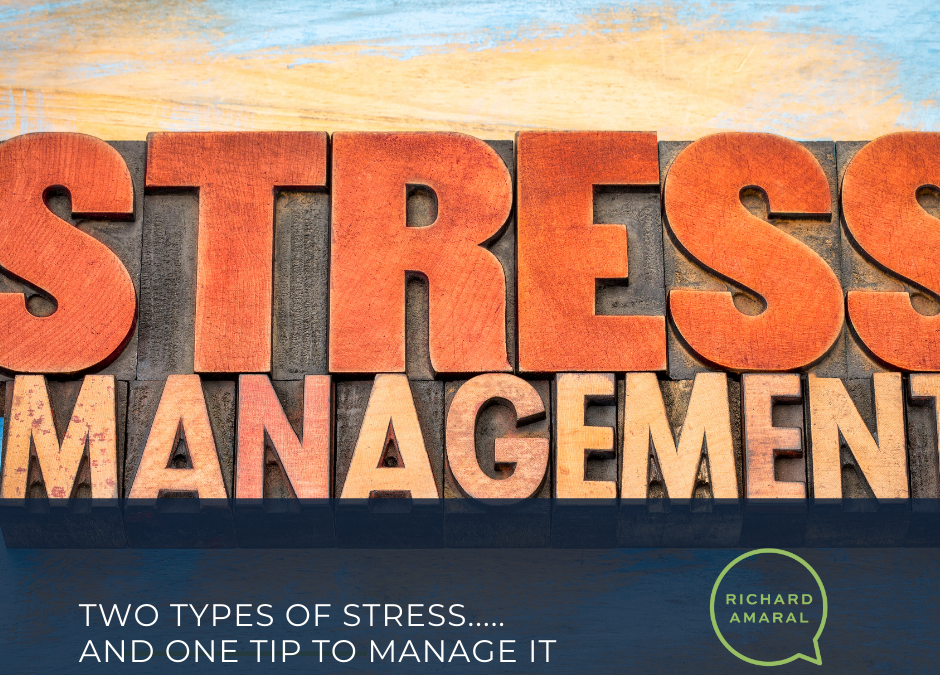There are a lot of beautiful festivals and holidays during this time of year.
But while this time of year can bring much joy and cause for celebration, it can also bring much stress.
So, for the next few weeks, I’ll be discussing various topics that all relate to the subject of stress.
In this week’s post, I thought I’d start with a description of two types of stress and provide you with a cognitive strategy on how to change the way you perceive and interpret a stressful situation.
Stress Is About Pressure
The term stress originated from the field of physics. It refers to the amount of force that produces strain on a physical body—for example, putting pressure on a piece of wood until it breaks in half.
Dr. Hans Selye, a medical doctor in the 1920s, was the first person to apply this concept to the human condition. He studied the impact of stress on the body’s functioning (e.g., how stress impacts heart functioning and contributes to illnesses).
Psychologists have since applied the concept of stress to understand how it impacts a person’s psychological health.
Different Types of Stress
While all of us experience stress from time to time, two types of stress can be particularly problematic.
(1) Acute Stress – Acute stress can produce intense feelings, often in response to specific events, but usually wears off after a while. For example, losing your wallet or delivering a presentation to a big group of people is an example of acute stress.
During the Christmas and Holiday season, many people experience acute stress due to financial struggles. Others feel stressed because they might have to spend time with family, or conversely, they’re reminded of how isolated they are from family.
Acute stress is also the least harmful or impactful on the body.
(2) Chronic stress – Chronic stress occurs when the body is under steady, constant pressure. When you experience stress for an extended period, it is considered chronic.
While your body and mind can quickly recover from an episode (or several episodes) of acute stress, chronic stress implies that the body and mind have little or no time to recover adequately. As a result, chronic stress leaves a person feeling exhausted and depleted.
One Strategy For Dealing With Stress
What I’d like you to remember, though, is that stress is a normal part of life and it’s impossible to go through life without experiencing any stress.
Because you’ve likely been through periods of acute stress, one strategy is to remind yourself of this fact and then reflect on questions that tap into your resilience.
- What lessons have you learned about your ability to overcome stress?
- Think of the most stressful moment you’ve been through in your life. How does the current moment compare to that one?
- Think of someone you admire. How would that person handle this current stressful moment?
In Conclusion
Over the next few months, you’re likely going to experience some degree of stress. But one thing to remind yourself is that you’ve been through stressful moments before and survived.
And if you did it before, you can do it again.
That’s what this week’s video is all about.
I hope this tip helps with your ability to manage stress, with your balance, and growth.
Richard

